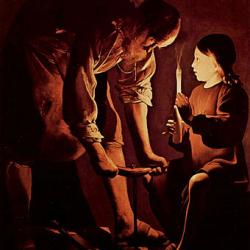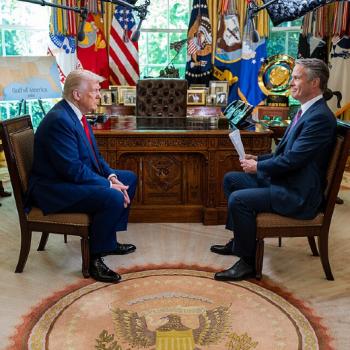After much argument and dialogic grappling, Jackson persuaded Castro, and in doing so, guaranteed the freedom of twenty-six wrongly persecuted prisoners, and took Castro to his first church service in twenty-seven years. Shortly after Jackson's departure from Cuba, Castro slowly began a process of granting religious liberty, allowing for the exercise of religion in prisons, and eventually receiving Pope John Paul II in 1998.
Political scientist Karin L. Stanford calls Jesse Jackson a "citizen diplomat" in her book on his unofficial, but not unimportant role in international affairs, Beyond the Boundaries. Jackson told me that whenever he negotiated the release of hostages or political prisoners in Iraq, Syria, and Yugoslavia, the journey toward the eventual emancipation of the captured and bound began with "the religious order." "Religion is the key to the culture," Jackson believes.
The struggle for civil rights and social justice continues, even as it morphs into other forms inhabiting new institutions. Jackson is using his key to unlock and open doors granting access to capital. An aggressive advocate of the diversification of the boardroom and business deal, Jackson is now focusing on the shockingly monolithic leadership of the high tech industry. White men dominate the boards and the decision-making processes of all the major technological companies, from Facebook to Pandora. USA Today also reported that there is an observable hiring bias in Silicon Valley. Non-white applicants, with the same qualifications as white applicants, get hired at unjustifiably low rates. Jackson has convinced Intel to pursue aggressively the diversification of their company by hiring more minorities, creating scholarships at historically black colleges, and setting up a $300 million "diversity and inclusion initiative."
At the same time, Jackson, who just recently turned seventy-three, shows staggering discipline and diligence in his work with the poor on the Southside of Chicago. Rainbow/PUSH, the organization he founded and leads, works daily to provide assistance to poor public schools, to secure aid for families in need of social services, and to apply pressure to political representation in Chicago, Springfield, and Washington D.C. to imagine and implement policies that level the playing field, create conditions necessary for equality, and honor the dignity and humanity of the poor.
Jackson's work delineates the layers of discrimination and obstruction that exist in America, thereby undressing the myth of meritocracy, and demonstrating the connections of aristocracy that undermine potential for growth and opportunity at the public school in a poor neighborhood and in executive offices at the Fortune 500 company. It is maladjustment to injustice that enables and equips Jackson to see the myriad metastases of the same cancer and organize the democratic power to heal.
I wondered if that maladjustment begins with the theology of the black church and the black interpretation of Christianity as a socio-spiritual source of both sanctification and liberation. If that is the case, then the role that the church should play in the present struggle for justice, in cases involving low-tech poverty, high-tech cronyism, or tech nine murder, is paramount, and parallel with the purpose it had during the civil rights movement.
Jackson managed to simultaneously confirm and deny the assumptions behind my curiosity with his own analysis.
"If you and I had some dough from which a biscuit is made, and we put some in your shoes, and some in my shoes, the biscuit would look different, because the power of the shoe shapes the form of it. But, there's nothing different about the content of the dough. Black religion is either adjusting oppression or fighting it. White religion is either fighting oppression or rationalizing it."
To fight oppression, or to adjust to it, or to rationalize it, is an old story, but Jackson tells it well. He is a great storyteller, using his life as narrative and his work as punctuation. Through the old story, it becomes clear that, although we live in an AD world with AD technology and AD struggles, the moral choice before all free people goes back to BC. It is part of both our ancestral lineage and our future legacy.




